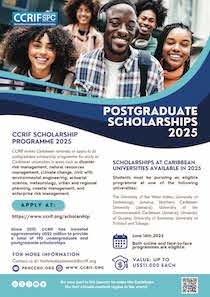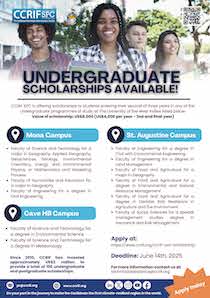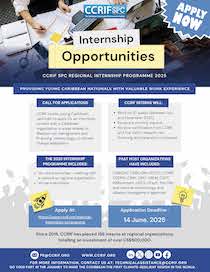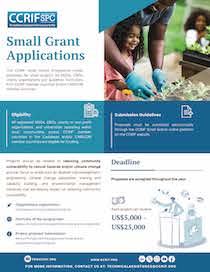Grand Cayman, Cayman Islands, June 14, 2024. On June 5, 2024, at the University of the West Indies Regional Headquarters in Jamaica, CCRIF SPC, in collaboration with The UWI, held the first Resilience Dialogue “Reflecting on 20 years post Hurricane Ivan” alongside a time capsule event “Messaging the Future – Our Vision for a resilient Caribbean 2044”.
These events were held as part of the Ivan+20 Initiative which is being spearheaded by CCRIF during 2024 to commemorate 20 years since Hurricane Ivan. The initiative is being rolled out under the theme, “Remembering the Past, Reflecting on the Present, and Visioning for the Future: Resilience, Adaptation, and Sustainability in Caribbean SIDS”. Ivan+20 provides the opportunity for the Caribbean region to reflect on the impacts of Hurricane Ivan and to share and document lessons learned, examine the present, and vision and strategize for the sustainable and resilient future we want.
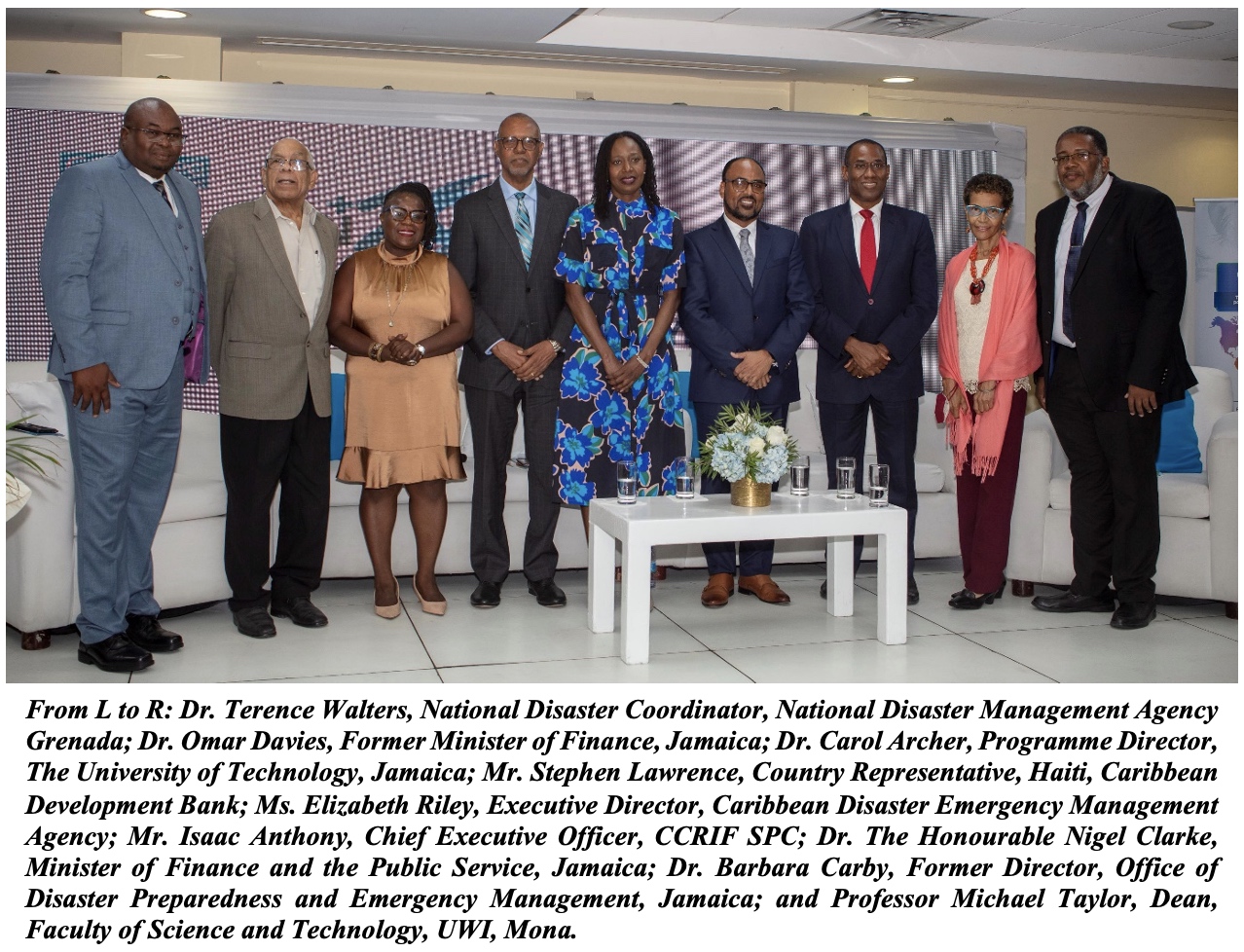
Ivan+20 was officially launched in Grand Cayman, in collaboration with the Cayman Islands Government, in recognition of the fact that the Cayman Islands was one of the countries that was most severely affected by Hurricane Ivan.
The Resilience Dialogue was designed to reflect on experiences and lessons learned from Hurricane Ivan and to share best practices and strategic approaches for advancing the resilience agenda of the Caribbean. The dialogue, moderated by Professor Michael Taylor, Dean of the Faculty of Science and Technology, UWI, Mona, was organized in two parts. The first part focused on Hurricane Ivan Impacts and Stories and how Ivan shaped the Disaster Risk Management Landscape in the Caribbean. Panellists were Dr. Omar Davies, Former Minister of Finance, Jamaica and Minister at the time of Ivan; Dr. Barbara Carby, Former Director General, Office of Disaster Preparedness and Emergency Management, Jamaica; and Dr. Terence Walters, National Disaster Coordinator, National Disaster Management Agency, Grenada.
The second part focused on Current Reflections and Preparing the Region for the Future… Approaches and Strategies for Advancing Resilience in the Caribbean. Panellists were Dr. The Hon. Nigel Clarke, Minister of Finance and the Public Service, Jamaica; Mr. Isaac Anthony, CEO, CCRIF SPC; Ms. Elizabeth Riley, Executive Director, Caribbean Disaster Emergency Management Agency (CDEMA); and Mr. Stephen Lawrence, Country Representative, Haiti, Caribbean Development Bank. Both panel rotations also included an ‘open chair’ allowing anyone from the audience to join the panel and ask questions or make contributions.
In reflecting on Hurricane Ivan, panellists shared several memories as well as policy prescriptions coming out of Ivan, many of which are with us today, and continue to frame the resilience agenda in the region. Some of these are presented below.
|
Dr. Barbara Carby: “For Hurricane Gilbert, we hadn't had a hurricane since 1951. For Ivan though, not only had we had Gilbert, but we had had the International Decade for Natural Disaster Reduction between 1990 and 1999. We had spent a lot of time on preparedness and mitigation. The population was in a much better place in terms of preparedness. Gilbert also gave rise to something which the sociologists call ‘false experience’. One of the things we found was that when we tried to get people to evacuate for Ivan, they said, ‘We went through Gilbert, and nothing happened’. But actually, the path of Ivan was different. So, some of the communities which were not badly impacted by Gilbert were severely impacted by Ivan.” |
|
|
|
Dr. Nigel Clarke: “Each generation builds on the work of the previous. What has changed, with respect to Jamaica, is that the approach is no longer an exposed approach, where you wait on the disasters and then cobble together the resources that you need. The approach today, decidedly, is one where we have layers of financial instruments designed to deliver fiscal resources in the event of an emergency. In 2016, Hurricane Matthew miraculously turned at a right angle just before reaching Jamaica and went up the eastern seaboard of the United States, reducing New Jersey to a developing country. I took that as my cue, and said ‘We’re going to make sure we build fiscal resilience that can provide us with protection or provide the emergency resources that can help us respond to a natural disaster’. My campaign about building a multi-layered suite of instruments was born of the Hurricane Matthew experience.” |
Ms. Elizabeth Riley: “Sectoral resilience is important because what we recognize at CDEMA is that if we wanted to really move the needle on resilience, we had to tackle resilience within the sectors because this is where the losses are happening. So, we started a conversation immediately after Ivan, which in 2007 led to the creation of what we call the Comprehensive Disaster Management Coordination and Harmonisation Council and it survives until today. We bring in sectors and identify lead entities to drive the resilience conversation for each sector, with CDEMA being a supporting act. And we’ve seen so many changes at the sectoral level. We can go into meetings now with our sectors and those ministers are speaking authoritatively on resilience for agriculture, tourism etc. And I think working on this since 2007 when the Council was formally launched has really made a difference.” |
|
|
||
During the second part of the discussion, Amir Francis, a student from the Avondale Preparatory School in Kingston posed a question to Dr. Clarke and Ms. Riley, asking “How do the Minister of Finance and CDEMA allocate funds after a natural disaster?” In response, Dr. Clarke shared that the allocation of resources depends on the damage assessments that are done by entities including the Office of Disaster Preparedness and Emergency Management, the National Works Agency, the Jamaica Social Investment Fund, and organizations that work with communities. Ms. Riley noted that CDEMA’s mandate is to support national governments, sharing that they are guided by priorities identified at the national level. She also shared the importance of expanding social protection programmes to include marginal groups.
The second resilience dialogue is expected to occur in collaboration with the Caribbean Disaster Emergency Management Agency on the margins of the CDEMA Council Meeting in St. Vincent and the Grenadines in July 2024. The third resilience dialogue and second time capsule event will be held in Grenada in September 2024. Learn more about Ivan+20.
Visit: https://www.ccrif.org/ivan20
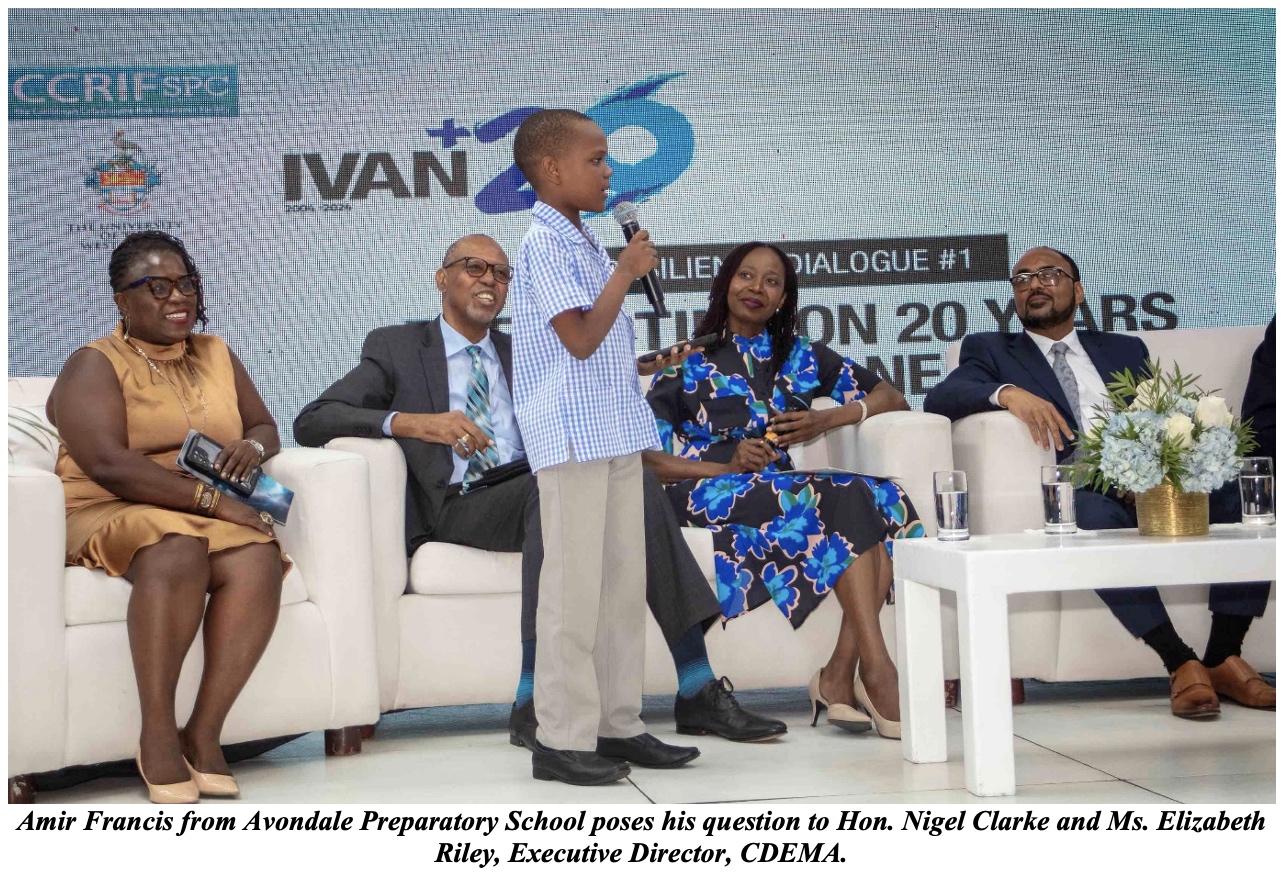
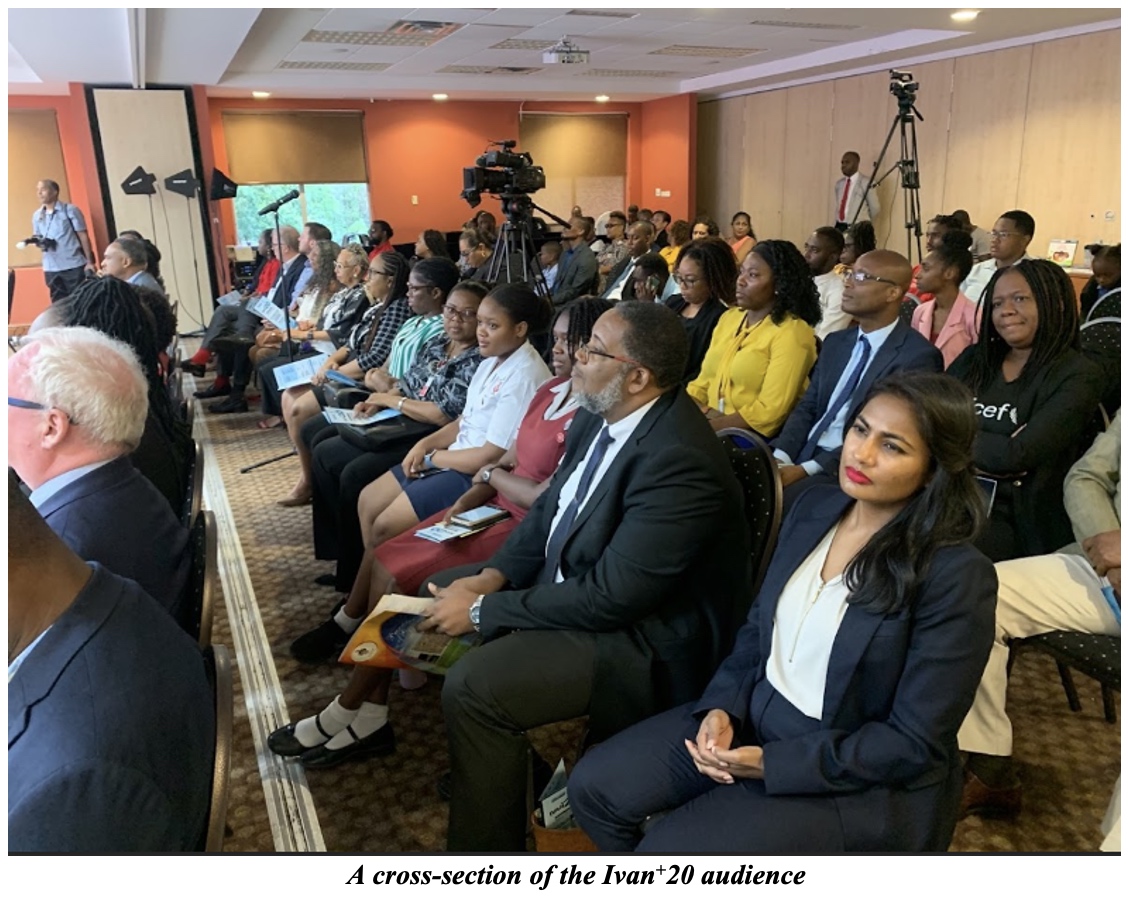
About CCRIF SPC:
CCRIF SPC is a segregated portfolio company, owned, operated, and registered in the Caribbean. It limits the financial impact of catastrophic hurricanes, earthquakes, and excess rainfall events to Caribbean and Central American governments by quickly providing short-term liquidity when a parametric insurance policy is triggered. It is the world’s first regional fund utilising parametric insurance, giving member governments the unique opportunity to purchase earthquake, hurricane and excess rainfall catastrophe coverage with lowest possible pricing. CCRIF was developed under the technical leadership of the World Bank and with a grant from the Government of Japan. It was capitalized through contributions to a Multi-Donor Trust Fund (MDTF) by the Government of Canada, the European Union, the World Bank, the governments of the UK and France, the Caribbean Development Bank and the governments of Ireland and Bermuda, as well as through membership fees paid by participating governments. In 2014, a second MDTF was established by the World Bank to support the development of CCRIF SPC’s new products for current and potential members and facilitate the entry of Central American countries and additional Caribbean countries. The MDTF currently channels funds from various donors, including Canada, through Global Affairs Canada; the United States, through the Department of the Treasury; the European Union, through the European Commission, and Germany, through the Federal Ministry for Economic Cooperation and Development (BMZ) and KfW. Additional financing has been provided by the Caribbean Development Bank, with resources provided by Mexico; the Government of Ireland; and the European Union through its Regional Resilience Building Facility managed by the Global Facility for Disaster Reduction and Recovery (GFDRR) and the World Bank.


